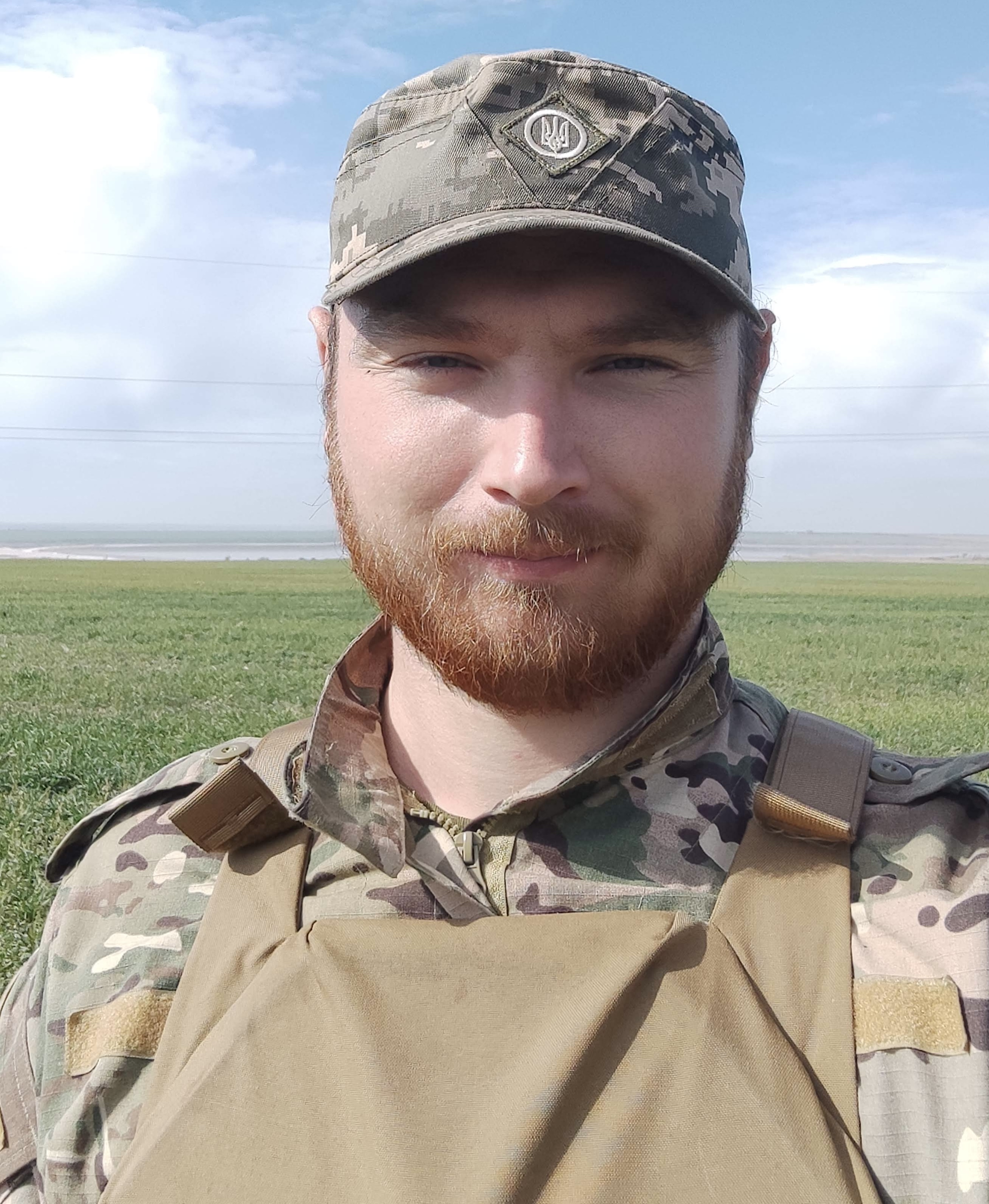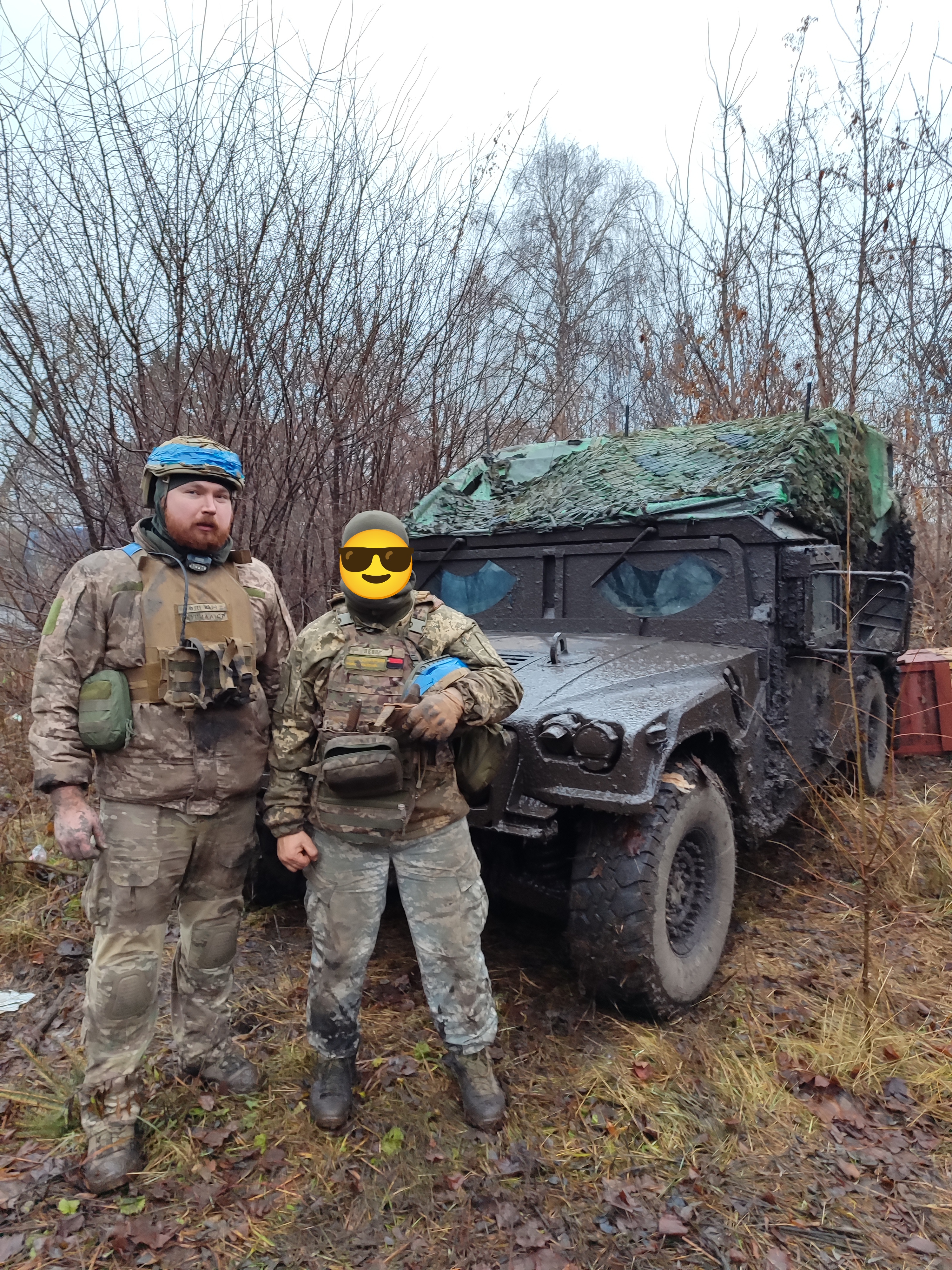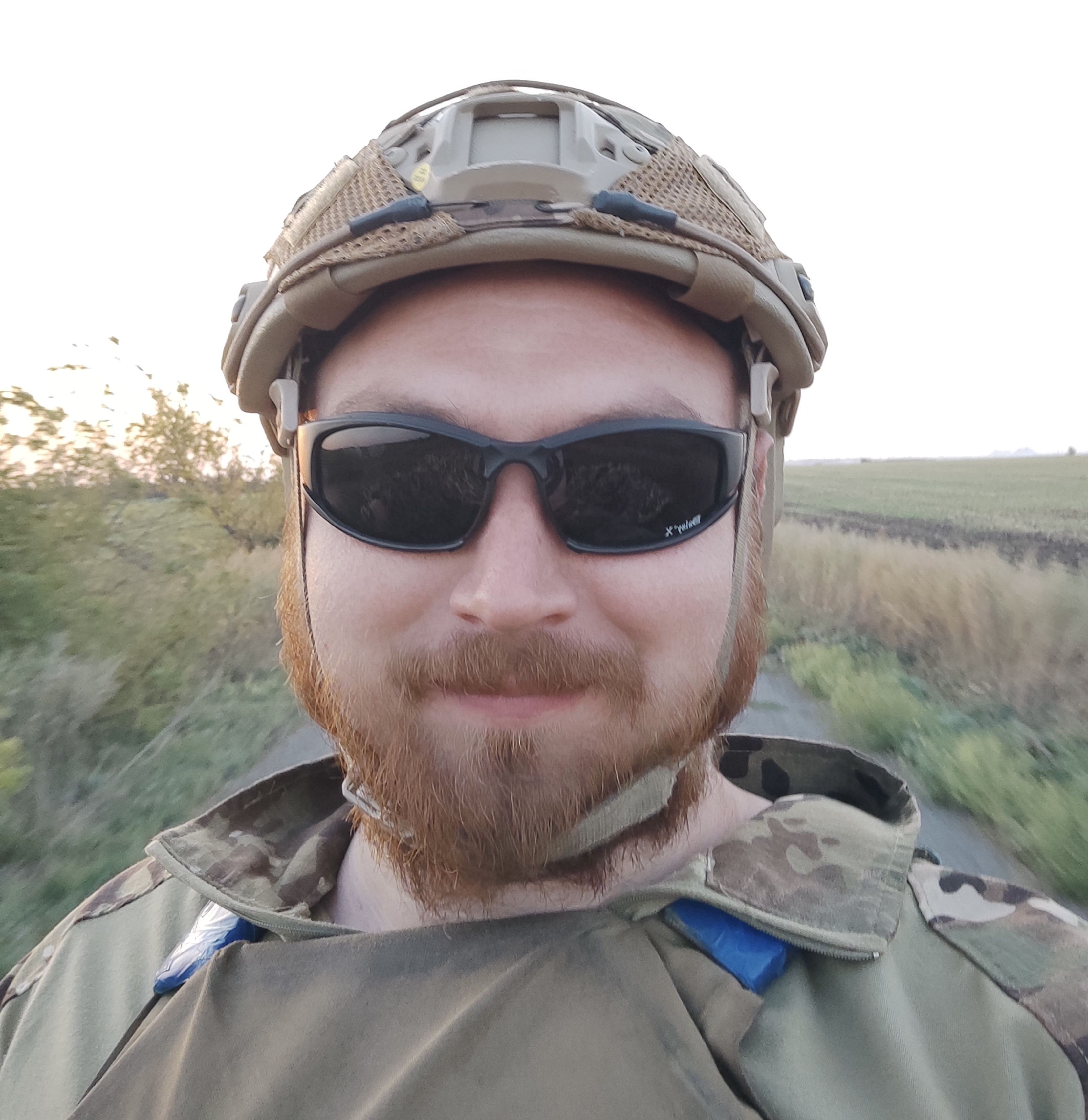Petro is 28 years old. For nearly three years, he has been serving in the war as a field medic with the 36th Marine Brigade. Before the full-scale invasion, he taught children computer science and robotics in Kherson — and also volunteered, repairing homes in frontline areas and helping improve public spaces.

On February 23, 2022, his students asked him whether there would be a war. Petro replied that the war had already been going on since 2014 — and that Russia could always want more. The next day, the children didn’t go to school. But Petro did — straight to the Territorial Defense unit.
“From the window, I could see the Chornobaivka airfield burning. Then it became clear the Russians were already near Kakhovka. There was no point in going to school, so I went to the recruitment center. I ended up in the Territorial Defense — a standard volunteer’s path at that time,” he recalls.
At first, Petro and his comrades had no body armor, no helmets, no uniforms. “I only had my passport. I was wearing a black coat, but I threw it away somewhere — it was too conspicuous,” he says.

When Russian forces entered the city, Petro spent two and a half months under occupation. He continued teaching his students remotely, and later, miraculously, managed to escape. Once safe, the schoolteacher again went to the enlistment office.
“They told me, first, that no one would take me — I wasn’t draft age yet. And second, my passport had been left behind with that black coat in Kherson,” Petro laughs.
It took more than two months to get a new passport. In that time, Petro unexpectedly fulfilled an old dream — to travel around Ukraine. He visited about 20 cities and towns. When the new passport was finally ready, he joined the Armed Forces.
“I decided to become a medic. I thought — I wouldn’t be suited for infantry; I have poor eyesight and some health issues. But in medicine, I could be useful. Even without a medical degree, I’ve always understood how the human body works. In tactical medicine, I knew exactly how I could help,” he says.
After training as a medic in Ukraine, Petro completed a combat medical course in the United Kingdom. He recalls that they simulated real battle conditions — under stress, trainees had to treat actors playing the wounded.
“I ran to a person screaming, fully aware it was a drill. Then I saw he had no leg — and I started wondering how they hid it so well. Turns out, they were actual veterans, wounded in real combat,” Petro says.
He remembers British instructors later confiding that they felt ashamed their country wasn’t fighting alongside Ukraine — and powerless to change political decisions.
His first mission remains etched in memory as the hardest and most emotional. Several soldiers were wounded; it was dark; one had a poorly packed tourniquet in his kit.
“But I did everything right — applied the tourniquet, stopped the bleeding, prepped a vein for quick medication — and then I heard someone up front shout, ‘F***, the medic’s a legend!’” Petro recalls.
At the time of this interview, Petro was recovering from a wound in Kyiv. He stopped by Leleka Foundation, where he had earlier received a fully equipped medical backpack. He’s unsure what he’ll do after the war — but he dreams of rest and renewal.
“Maybe I’ll go back to teaching. Maybe I’ll start a business. And I really dream of visiting Antarctica — I’m actually reading Markiyan Prokhaska’s Dream of Antarctica right now,” he says with a smile.



 УКР
УКР